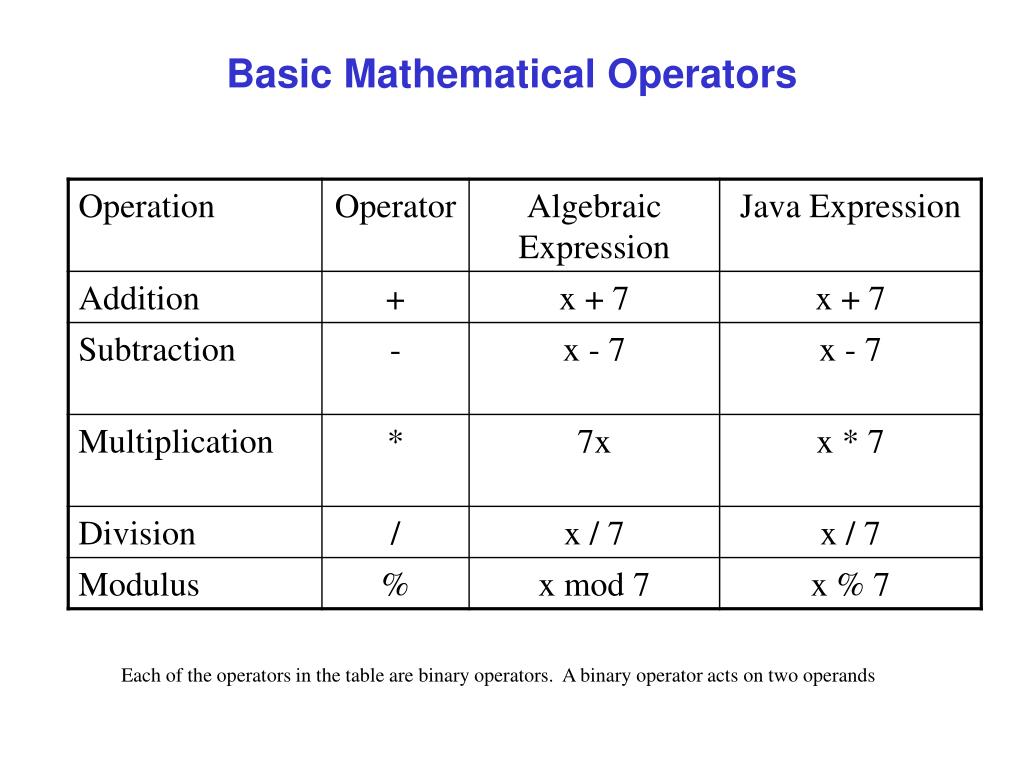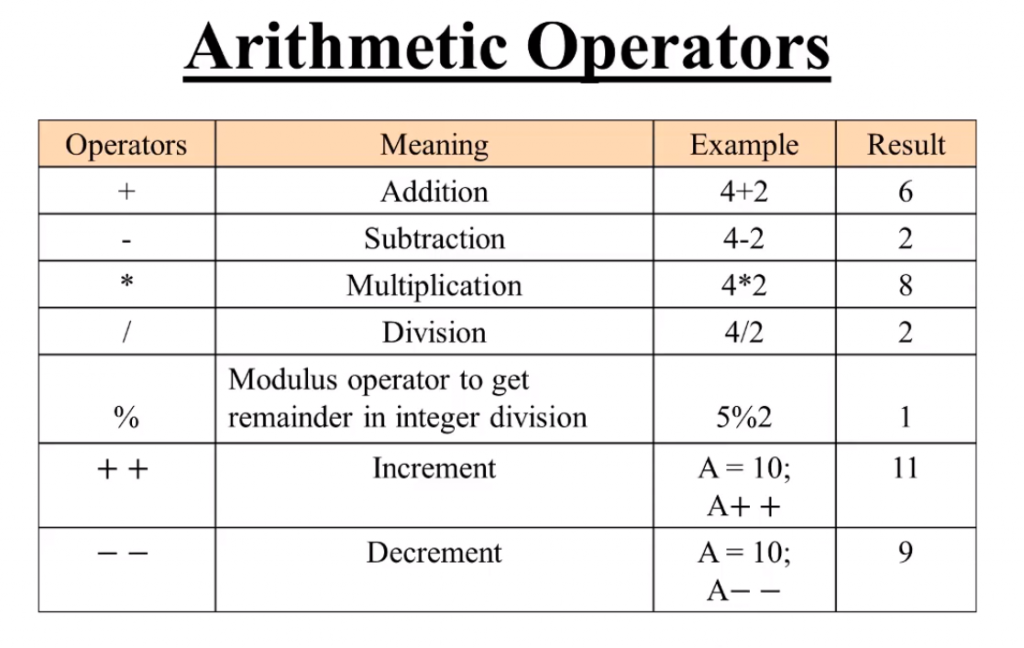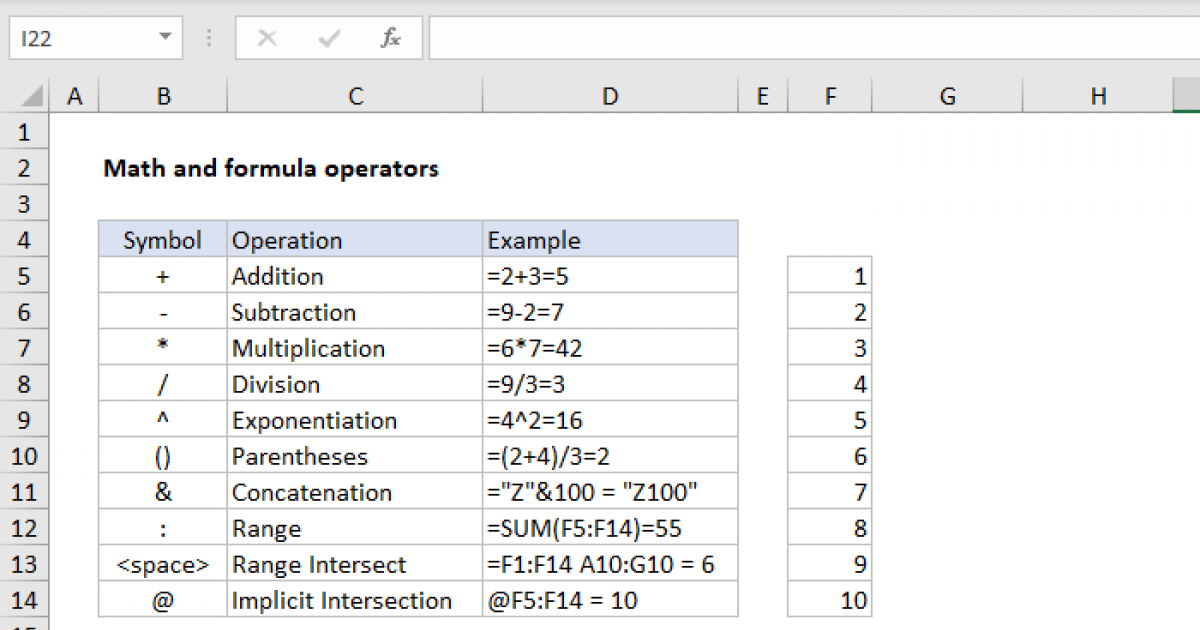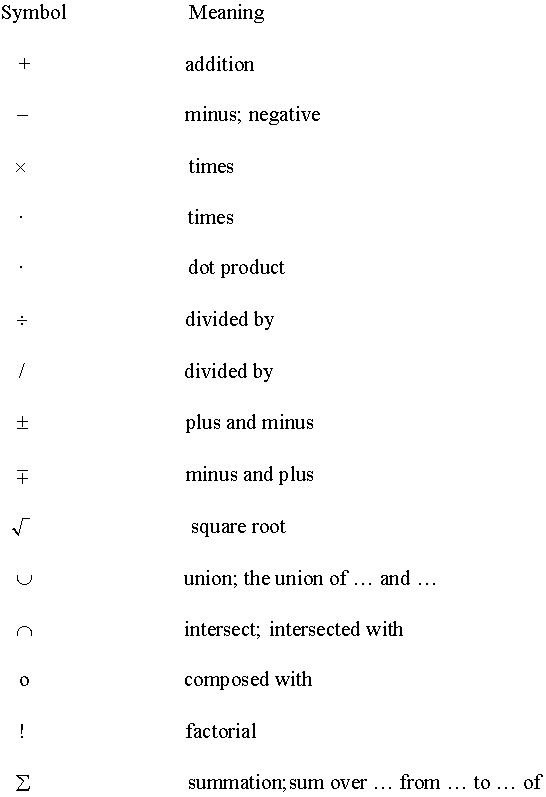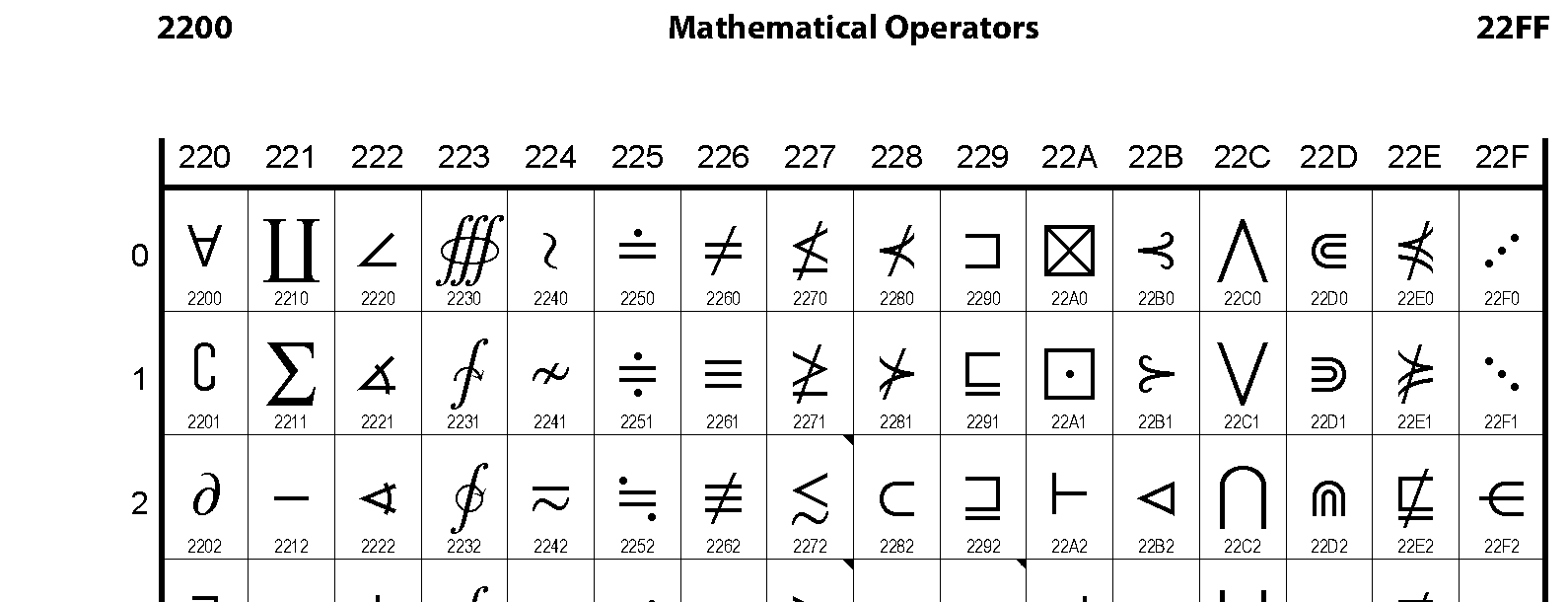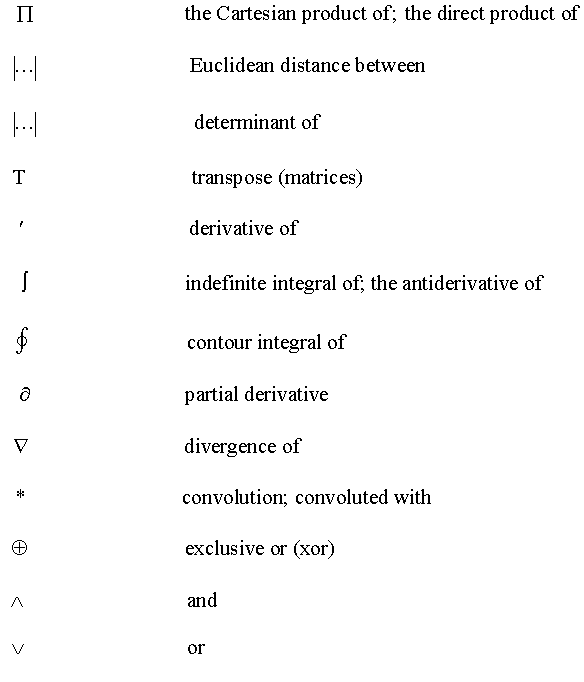Operator In Math
Operator In Math - From a formal point of. Operators occur commonly in engineering, physics and mathematics. In mathematics, an operator or transform is a function from one space of functions to another. In mathematics, an operator is generally a mapping or function that acts on elements of a space to produce elements of another space (possibly and sometimes required to be the. A symbol (such as , minus, times, etc) that shows an operation (i.e. The difference between an operator and a function is simply that we've decided to call the operator an operator and we've decided to call the function a function.
In mathematics, an operator or transform is a function from one space of functions to another. Operators occur commonly in engineering, physics and mathematics. From a formal point of. A symbol (such as , minus, times, etc) that shows an operation (i.e. The difference between an operator and a function is simply that we've decided to call the operator an operator and we've decided to call the function a function. In mathematics, an operator is generally a mapping or function that acts on elements of a space to produce elements of another space (possibly and sometimes required to be the.
From a formal point of. Operators occur commonly in engineering, physics and mathematics. In mathematics, an operator or transform is a function from one space of functions to another. A symbol (such as , minus, times, etc) that shows an operation (i.e. In mathematics, an operator is generally a mapping or function that acts on elements of a space to produce elements of another space (possibly and sometimes required to be the. The difference between an operator and a function is simply that we've decided to call the operator an operator and we've decided to call the function a function.
PPT Mathematical Operators PowerPoint Presentation, free download
In mathematics, an operator or transform is a function from one space of functions to another. Operators occur commonly in engineering, physics and mathematics. In mathematics, an operator is generally a mapping or function that acts on elements of a space to produce elements of another space (possibly and sometimes required to be the. The difference between an operator and.
Arithmetic Operators in JavaScript.
The difference between an operator and a function is simply that we've decided to call the operator an operator and we've decided to call the function a function. In mathematics, an operator or transform is a function from one space of functions to another. From a formal point of. Operators occur commonly in engineering, physics and mathematics. A symbol (such.
"Nabla Operator Definition Math And Calculus Basics" Poster for Sale
A symbol (such as , minus, times, etc) that shows an operation (i.e. In mathematics, an operator or transform is a function from one space of functions to another. In mathematics, an operator is generally a mapping or function that acts on elements of a space to produce elements of another space (possibly and sometimes required to be the. The.
Excel Math Operators Exceljet
In mathematics, an operator is generally a mapping or function that acts on elements of a space to produce elements of another space (possibly and sometimes required to be the. A symbol (such as , minus, times, etc) that shows an operation (i.e. The difference between an operator and a function is simply that we've decided to call the operator.
Operator Related Math Symbols
Operators occur commonly in engineering, physics and mathematics. A symbol (such as , minus, times, etc) that shows an operation (i.e. In mathematics, an operator is generally a mapping or function that acts on elements of a space to produce elements of another space (possibly and sometimes required to be the. From a formal point of. The difference between an.
Math Operations Chart Math operations, Writing algebraic expressions
In mathematics, an operator is generally a mapping or function that acts on elements of a space to produce elements of another space (possibly and sometimes required to be the. Operators occur commonly in engineering, physics and mathematics. A symbol (such as , minus, times, etc) that shows an operation (i.e. The difference between an operator and a function is.
2200 Mathematical Operators
In mathematics, an operator is generally a mapping or function that acts on elements of a space to produce elements of another space (possibly and sometimes required to be the. A symbol (such as , minus, times, etc) that shows an operation (i.e. In mathematics, an operator or transform is a function from one space of functions to another. Operators.
Mathematical Operations Learn and Solve Questions
Operators occur commonly in engineering, physics and mathematics. The difference between an operator and a function is simply that we've decided to call the operator an operator and we've decided to call the function a function. A symbol (such as , minus, times, etc) that shows an operation (i.e. In mathematics, an operator or transform is a function from one.
Operator Related Math Symbols
In mathematics, an operator is generally a mapping or function that acts on elements of a space to produce elements of another space (possibly and sometimes required to be the. From a formal point of. In mathematics, an operator or transform is a function from one space of functions to another. A symbol (such as , minus, times, etc) that.
Python Arithmetic Operators Teaching Resources
The difference between an operator and a function is simply that we've decided to call the operator an operator and we've decided to call the function a function. Operators occur commonly in engineering, physics and mathematics. A symbol (such as , minus, times, etc) that shows an operation (i.e. In mathematics, an operator is generally a mapping or function that.
In Mathematics, An Operator Or Transform Is A Function From One Space Of Functions To Another.
A symbol (such as , minus, times, etc) that shows an operation (i.e. Operators occur commonly in engineering, physics and mathematics. The difference between an operator and a function is simply that we've decided to call the operator an operator and we've decided to call the function a function. From a formal point of.
